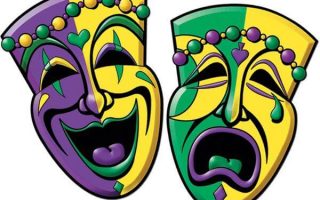Drug-seeking behaviors are common for bored Psychopaths, Somatic Narcissists, and Narcopaths.
Learning how to spot the warning signs that a friend or family member is using and abusing medical care practitioners to alleviate psychological and emotional boredom while attention-seeking can be a major red flag of serious gaslighting being done on family members, employers, and healthcare practitioners by a covert narcissistic personality type who routinely engages in Anti-Social behaviors and Machiavellian scheming.
Psychopaths are a rare breed of human beings.
Emotionally volatile, prone to wild mood swings, harboring deep-seated insecurities and vendetta agendas against perceived rivals, and bored easily, many simply cannot stay in one place for too long or introspect for any period of time without becoming extremely agitated and lashing out at the people around them out of bored agitation and anxiety.
Prone to addictive behaviors without necessarily becoming chemically dependent on any one thing, they are the people most likely to seek out doctor’s assistance writing them prescriptions and to constantly pursue highs from drug binges and minor elective surgeries.
Why?
Psychopaths, by nature, tend to be dramatic.
Even when they keep their mental type hidden under deep layers of covert ops style machinations, they tend to have a flair for the dramatic in private.
Since they have a limited ability to process complex emotions like empathy, sometimes seeking to induce a drug-addled state into their own psychology actually helps them get themselves off (psychologically speaking and emotionally).
Look for drug-seeking behaviors in men, women, and “others” (such as people who struggle with gender identity issues coupled with extreme personality disorders.
Understand that just because someone seeks gender reassignment, they are not necessarily suffering from any ominous personality disorder — but if they have a long history of drug and alcohol abuse, self-harming, genital mutilation, or addiction to tattoos or piercing, asking for hormones and gender reassignment surgical procedures may be their covert way of letting it slip that they are deficient psychologically and emotionally.
[Think of the “heterosexual” male who frequently engages in gay sex with other men while cross-dressing and packing the anus with cocaine, coupling the event with heavy drinking, popping painkillers, and asking for men and women wearing high heel stilettos to crush their freshly pierced genitals. When he heads home to the clueless wife and engages in unprotected sex with her resulting in pregnancy, he affirms his machismo while abusing his unsuspecting female partner in such a way that is Machiavellian, dangerous to the entire family (exposing her to STDs), and clearly has engaged in Narcissistic Abuse of his female life partner in a such a way that she — rather than he — is likely to feel is utterly HUMILIATiNG.]
Somatic Narcissists with plastic surgery addictions are oftentimes simply having procedure after procedure not only to strive to convince other people they are better looking than they actually by nature were or are but also hoping their Plastic Surgeon will be generous with pain pill prescriptions.
Elderly people who have clear Narcopath tendencies and a flair for the dramatic might appear to be Histrionic when visiting their physician, dentist, osteopaths, and oral surgeons but make no mistake about it.
Pain gives some people a pleasurable endorphin rush so they seek out elective medical care procedures to have that will hyperstimulate their own physical and emotional body by willingly having cosmetic or essentially unnecessary or totally hasty procedures.
Look for the elderly who run to the doctor for every little illness, suspected medical condition, allergy, or pain.
They are typically engaging in both attention-seeking as well as drug-seeking behaviors on most doctor, dentist, or even dermatology appointments covertly and in the most socially unnoticeable or innocuous of ways.
Look at parents who over-medicate themselves regularly to encourage their children to learn the same tricks of the trade.
Moms who compulsively run to pediatricians complaining about their children’s behavior at home, school, and daycare who smear campaigns against their own children in order to procure mind-numbing and behavior or mood-altering drugs for the child oftentimes steal meds themselves or buy similar drugs on the black market to simultaneously self-medicate.
Not sure if your suspected Psychopath mom or even a Narcissistic Sociopath father are using drugs of the prescription or illegal drug variety in a problematic or abusive way?
Consider the following information list of drug-seeking behaviors any smart nurse, doctor, or healthcare provider should be on the lookout for in patients — especially those whose life history shows a clear pattern of having abused drugs or alcohol or having historically been prone to violent rage.
Insurance companies should be alerted to anyone who is suspected of having a drug addiction or intermittent proclivities for drug or alcohol binging issues. So should neighbors, family members, and employers.
Those who have a long history of reaching out to doctors, dentists, psychiatrists (to “take the edge off”, are the most likely offenders.
Psychopaths seeking to alleviate personal boredom are the most likely people to do things like substituting alcohol when prescription pills (or something like crack, heroin, or cocaine) are not readily available to them.,
Aggressive people are likely to be nothing more than run of the mill bored Psychopaths (or more tame and predictable garden variety trauma-induced Sociopaths) pulling Machiavellian gaslighting schemes on their friends, family, and anyone willing to indulge their toxic drug-seeking behaviors.
Recognizing the Drug Abuser
Telling the difference between a legitimate patient and a drug abuser isn’t easy. The drug-seeking individual may be unfamiliar to you. They could be a person who claims to be from out-of-town and has lost or forgotten a prescription of medication. Or the drug seeker may actually be familiar to you such as another practitioner, co-worker, friend or relative. Drug abusers or “doctor-shoppers” often possess similar traits and modus operandi. Recognizing these characteristics and modus operandi is the first step to identifying the drug-seeking patient who may be attempting to manipulate you in order to obtain desired medications.
Common Characteristics of the Drug Abuser:
- Unusual behavior in the waiting room;
- Assertive personality, often demanding immediate action;
- Unusual appearance – extremes of either slovenliness or being over-dressed
- May show unusual knowledge of controlled substances and/or gives medical history with textbook symptoms OR gives evasive or vague answers to questions regarding medical history;
- Reluctant or unwilling to provide reference information. Usually has no regular doctor and often no health insurance;
- Will often request a specific controlled drug and is reluctant to try a different drug;
- Generally has no interest in diagnosis – fails to keep appointments for further diagnostic tests or refuses to see another practitioner for consultation;
- May exaggerate medical problems and/or simulate symptoms;
- May exhibit mood disturbances, suicidal thoughts, lack of impulse control, thought disorders, and/or sexual dysfunction;
- Cutaneous signs of drug abuse – skin tracks and related scars on the neck, axilla, forearm, wrist, foot and ankle. Such marks are usually multiple, hyper-pigmented and linear. New lesions may be inflamed. Shows signs of “pop” scars from subcutaneous injections.
Modus Operandi Often Used by the Drug-Seeking Patient Include:
- Must be seen right away;
- Wants an appointment toward end of office hours;
- Calls or comes in after regular hours;
- States he/she’s traveling through town, visiting friends or relatives (not a permanent resident);
- Feigns physical problems, such as abdominal or back pain, kidney stone, or migraine headache in an effort to obtain narcotic drugs;
- Feigns psychological problems, such as anxiety, insomnia, fatigue or depression in an effort to obtain stimulants or depressants;
- States that specific non-narcotic analgesics do not work or that he/she is allergic to them;
- Contends to be a patient of a practitioner who is currently unavailable or will not give the name of a primary or reference physician;
- States that a prescription has been lost or stolen and needs replacing;
- Deceives the practitioner, such as by requesting refills more often than originally prescribed;
- Pressures the practitioner by eliciting sympathy or guilt or by direct threats;
- Utilizes a child or an elderly person when seeking methylphenidate or pain medication.
What You Should Do When Confronted by a Suspected Drug Abuser
DO:
- perform a thorough examination appropriate to the condition.
- document examination results and questions you asked the patient.
- request picture I.D., or other I.D. and Social Security number. Photocopy these documents and include in the patient’s record.
- call a previous practitioner, pharmacist or hospital to confirm patient’s story.
- confirm a telephone number, if provided by the patient.
- confirm the current address at each visit.
- write prescriptions for limited quantities.
DON’T:
- “take their word for it” when you are suspicious.
- dispense drugs just to get rid of drug-seeking patients.
- prescribe, dispense or administer controlled substances outside the scope of your professional practice or in the absence of a formal practitioner-patient relationship.
U.S. Department of Justice — Drug Enforcement Administration — DEA — Office of Diversion Control
If you are concerned about the behavior of a person you know and love who always seems to be running to and from the doctor for things that appear to be elective surgeries, you are not alone.
As the DEA’s writer source says, “It is not the intent of the [aforementioned] publication [points] to reduce or deny the use of controlled substances where medically indicated. Nothing in this guide should be construed as authorizing or permitting any person to conduct any act that is not authorized or permitted under Federal or state laws.”
Since people with Cluster B personality types typically have no respect for the law aside from a healthy and normal fear, they tend to have more flexible ideas about what illicit drug use means in general.
When a person is using pain meds, psychiatric drugs, or other pharmaceutical prescriptions to heighten senses and alleviate boredom it’s recreational use.
Moreover, however, when and if they begin the habit of manufacturing reasons to visit medical professionals in order to justify drug-seeking behavior, take heed.
A Psychopath who is prone to impulsive behavior and using drugs or alcohol to self-stimulate the deviant pleasure centers in their brain is also more than likely addicted to themes of power, control, sadism, and masochism.
Thanks to Enablers and Flying Monkeys willing to overlook their health habits or to lie for them in order to cover and keep their reputation sparkling [camoflaging the tarnish], they are truly able to hide both their personality type and their proclivity for drug use and abuse in plain sight.
Do not be that duped friend or family member who defends a Psychopath.
All are hospitality and trust abusers who have zero conscience, making them prone to do socially harmful things impulsively each day without caring or thinking.
If they slide down the slippery slope to becoming a drug addict, using alcoholic, street drug addict, or prescription pain killer pill-popping junkie, they will abuse any peer or person who comes into contact with them.
Save yourself by realizing when and if they develop a habit and limit all opportunities for them to abuse your faith and trust by being hateful or abusing your trust (as a Narcissistic Supply Source) during any opportunity they have to make contact.
Call 911 if they do things like make threats of violence, become physically confrontational, or begin to use their words to harm.
Seriously — the more victims hurt and experience physical duress when provoked, baited, under stress, or attacked, the more the Psychopath is likely to claim they think your pain is funny and to laugh.





